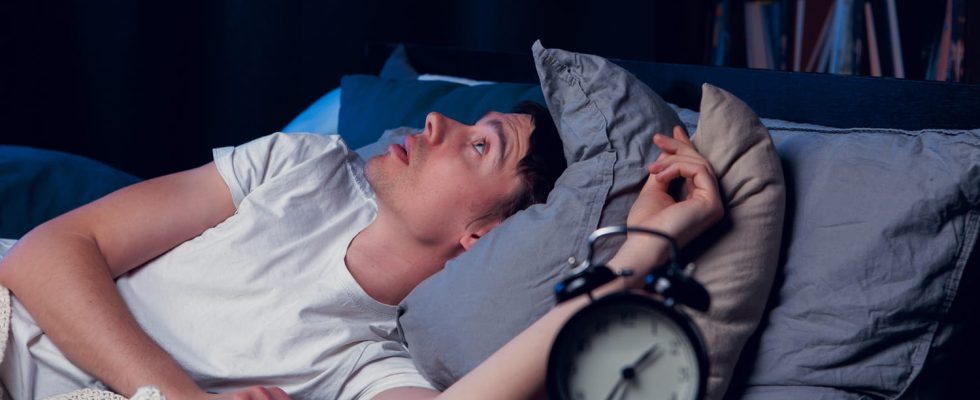Accumulating several symptoms of insomnia could increase the risk of having a stroke, according to a study published in Neurology. Even more so for those under 50.
We know that sleep is the key factor for good health in the broad sense, but also specifically for cardiovascular health. This is confirmed by the study by American researchers published in the journal Neurology early June. In the USA, insomnia affects more than a third of the population (between 30 and 50% in France) but “THE link between insomnia symptoms and stroke is understudied and the underlying mechanism remains unclear” the authors point out. Based on this observation, they analyzed data from a survey carried out among Americans over 50 and their spouses, from 2002 to 2020. 31,123 participants who had never had a stroke were included and followed for 9 years. The average age was 61 years old And 57% were women. They looked specifically at those reporting having:
- ddifficulty falling asleep,
- of the difficulty maintaining sleep,
- of the difficulty waking up early,
- A non-restorative sleep
More than 2000 stroke were identified during the follow-up period. “Compared to subjects without any symptoms of insomnia, an increased risk ofstroke was observed in those whose insomnia symptom scores ranged from 1 to 4 and from 5 to 8 (number of symptoms, editor’s note)” report the researchers. The people who presented 1 to 4 symptoms characteristics of sleep disorders had an increased risk of stroke 16%. Those accumulating 5 to 8 symptoms saw this same risk rising to 51%. The association was even stronger among adults younger than 50, in the presence of comorbidities (diabetes, hypertension, heart disease, depression). “There are many therapies which can help people improve the quality of their sleep, commented study author Dr. Wendemi Sawadogo of Virginia Commonwealth University in Richmond and a member of the American Academy of Neurology. Determining which sleep problems lead to an increased risk of stroke can allow earlier treatment or behavioral therapies for people who have trouble sleeping and possibly reduce their risk of stroke later in life.”
